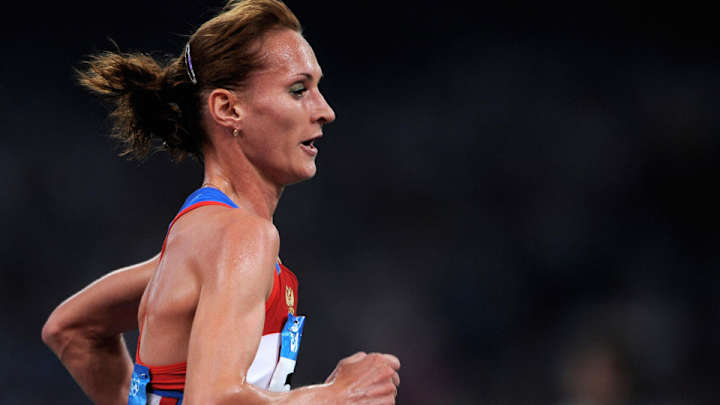IAAF bans four officials for Russian doping cover-up

Pappa Massata Diack, the son of former IAAF president Lamine Diack, and two Russian officials were banned for life from track and field after the findings of an IAAF Ethics Commission investigation showed evidence of blackmail, bribery, extortion and cover-ups of positive doping tests.
The officials banned for life are: Diack, formerly an IAAF marketing consultant; Alexei Melnikov, former head coach of Russia's race-walking and long-distance running programs; and Valentin Balakhnichev, the former Russian athletics federation head.
Gabriel Dollé, the former IAAF anti-doping director, was handed a five-year ban. He resigned from his position with the IAAF in December after being interviewed by the ethics committee.
French prosecutors say a police search discovered $93,000 in cash in Dolle’s home in Nov.
The case was first brought to the attention of the IAAF after Russian marathoner Liliya Shobukhova reportedly spent more than $500,000 to avoid a doping ban ahead of the 2012 Olympics in London. Shobukhova's personal best of 2:18:20 from the 2011 Chicago Marathon ranked as the second fastest marathon run by a woman before the Russian Athletic Federation first reported abnormalities in Shobukhova’s biological passport, used to detect doping over a period of time, in April 2014.
• IAAF chief steps aside over Russian doping cover-up
Shobukhova was the winner of the Chicago Marathon from 2009 to 2011 and was also victorious at the 2010 London Marathon. Chicago and London have stripped her of her titles and have requested that she return all prize money.
Valentin Balakhnichev previously served as the Russian athletics federation head and as an honorary treasurer of the IAAF. Shobukhova's husband paid $345,000 to Balakhnichev after being threatened with a doping ban. Upon revelation of the payment in a documentary by German television network ARD, Balaknichev stepped down from his post.
In the ethics comission’s report, Melnikov and Balakhnichev said they were framed by Shobukhova’s agent as part of an elaborate scheme he devised.
The ethics commission also found that certain documents Melnikov presented in his defense were fabricated and determined Balakhnichev, Melnikov and Diack were involved in “a form of blackmail.”
WADA put the blame on Balakhnichev for all the wrongful actions that occurred as the head of Russia's athletics federation.
Lamine Diack, 82, was arrested in November and ordered not to leave the country by French investigators following his release on bail. He ended his tenure as IAAF president in August after 16 years.
Olympic champion Sebastian Coe succeeded Diack as president after serving as his vice president for seven years. He issued the following statement on Thursday.
“I’d like to thank the independent IAAF Ethics Board for their diligent and detailed investigation. The life bans announced today could not send a stronger message that those who attempt to corrupt or subvert the sport of athletics will be brought to justice. We continue to work with the French authorities’ investigation and the WADA’s Independent Commission.”
The IAAF issued the following statement on the findings:
“The IAAF is angered to see that individuals have in the panel’s finding ‘conspired to extort what were in substance bribes from the athlete by acts of blackmail.’ This is all the more so because these breaches are related to one doping case which, among others, was identified and pursued by the IAAF Anti-Doping Department. Ultimately, the Department was able to ensure that the athlete concerned received a lengthy ban, but the four individuals’ activities delayed that outcome. The IAAF has already introduced corrective measures to make sure this sort of interference can’t happen again.”
The IAAF commission’s bans can be appealed to the Court of Arbitration for Sport. Balakhnichev intends to appeal against the decision.
In December, the World Anti-Doping Agency issued a report that uncovered Russia was guilty of systemic doping and recommended a ban from international competition. The IAAF has suspended Russia until it can improve upon its anti-doping policy to meet WADA’s standards. Russia is in danger of missing the 2016 Olympics in Rio de Janeiro.
• Sports Illustrated’s 25 most popular stories of 2015
The IAAF will visit Russia over the weekend to inspect its anti-doping changes.
WADA will release a second report next week that will focus on rampant blood doping in track and field based on leaked information from an IAAF database last summer.
- Christopher Chavez
